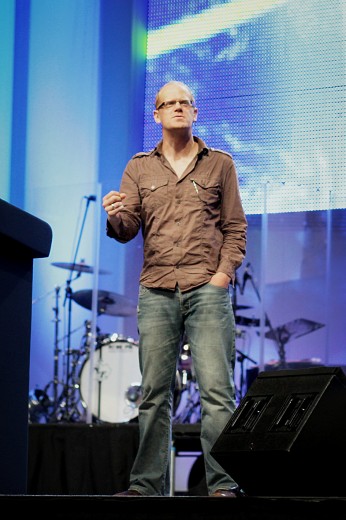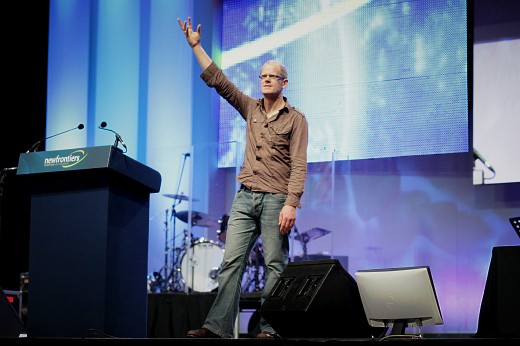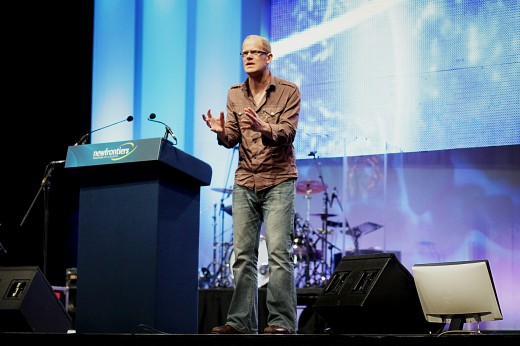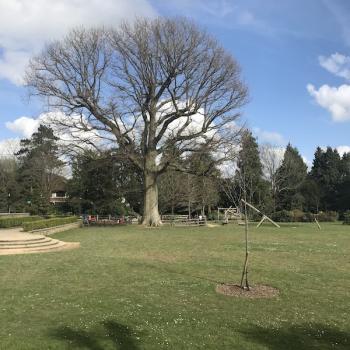These are my notes from the final session from this years Together On a Mission. The preacher was Joel Virgo.
David fought many wars. It initially seems odd that this one gets prominence. It is surely not just because the writer has a sense of humor and wishes to remind us of the humiliation of men effectively having their trousers removed.
David is given outrageous promises. He is told that his descendant will rule over the universe for ever. This was someone who was not, and wasn’t even in the room when Samuel was wanting to choose the next king. David was overwhelmed. God’s answer to the world is the establishment of a king and a kingdom ruling from Zion for the good of all nations. David was a humble man, and was kind towards Mephiposheth for the sake of Jonathan. This is the outworking of God’s promises to a man. Success and mercy are the features of God’s kingdom. Tenderness, and justice. Chapter ten seems like a bit of a jolt. There is a nasty feel. David is on a role and he tries to show mercy to the son of an old friend.
Hanan is from a different kingdom. He acts in a different way. This nasty rebuttal almost looks like a bachelor party that goes horribly wrong. It might seem funny to us, but it was a calculated way of showing contempt and rebellion towards this king of Israel. It was Middle Eastern calculated scorn.
What we see here is the characteristics of two very different kingdoms. We see some of the best features of God’s rule, and the worst features of mans rule. How do we assert the rule of king Jesus, against a culture that goes by other principles.
Characteristics of the other kingdom
1. The absence of a godly fear – Suspicion, hatred, autonomy, independent spirit. No sense that God is to be taken seriously. Psalm 2 tells us that opposition to the Lord comes with opposition to his anointed ones. We will be persecuted if we are in the slipstream of God. But the one who sits in the heavens LAUGHS. Don’t play around with God’s people! Psalm 2 is the theological background to 2 Samuel 10. Lack of respect for God is associated with a lack of respect for anointing. There needs to be an appropriate respect, even reverence for anointed leadership. It is not so much about the fleshly man, as Gods choosing of a man, and his work in his life. David was not like that. He was not willing to kill Saul. Complete contrast with David. In western culture we can democracies things so much that we loose the concept. We can be nervous, and with good reason for this idea has been abused by many. Some bloggers can seem to exist to set themselves up, and destroy others. Not everybody’s opinion counts the same. Not everybody who wants to stand up on a soap box has necessarily been raised up by God. Who are those whom GOD is raising up? When choosing leaders, etc, you want to ask “I want to see who God is working through.” When God raises people, they may look very different to each other. Don’t be like “I don’t believe in anointing, I think we should all vote.” Barnabus went to get Saul, he was an awkward. Barnabus saw the grace of God in a man who was quite scary. Barnabus was like “I’d love it if God was with me as much as he is with Paul, but he is not, so I want him to be raised up.” How do you evaluate the anointing? How do you evaluate the grace of God? If you don’t know ask others to help you, and study the Bible to see what it looks like. Owen would say “I would give all I posses to preach like that tinker, Bunyan”
2. An overreaching regime There is a swollen headiness that comes when you lack the fear of God. Be sober about your self-assessment. Know what you are graced to do. Don’t try to be someone else. We sometimes need a Simon Cowell moment, when someone tells us “Uh, Huh! That is not your gift.” His son asks him to pray for him to make him “powerful” that is a tendency we all have to fight all our lives. When God promises you things, the right response is “O, who am I?” Be wary of inflated views of ourselves. David referred to himself as “David, son of Jesse.” He could have claimed so much more. When you know that you are not much in yourself, but God has been very good to you it sets you free from so much striving. One preacher was being falsely slandered by others and went to God. God’s reply was “The worst that they can say about you is better than the truth” Yahweh exalted me. Yahweh set me up. No wonder he did what he did for Mephiposheth. Who reminds me of me? Who can I bless undeservedly. We must be in touch with the giver, and understand the depth from which we have been plucked.
3. The absence of leadership and the presence of flattery. Hanan has little part in this. Hanan doesn’t say anything. The advisers are in charge. He was raised by a father who was loyal to David, loved him, and respected him. He would have heard stories from him. But he doesn’t listen to the voice of his dead father. He listens to the suspicious voices of those around him. Sometimes the team leader must actually lead. Hanan is flattered. When Moses was flattered, he did not respond in the same way. Great leaders recognize great leaders. Don’t be quick to dismiss other leaders in God. Terry met someone recently who said 30 years ago I was told things about you that led me to slander you. I discovered today that none of it was true. It is a beautiful thing to reach out and aim for reconciliation, but that was 30 years wasted!
Characteristics of David’s Kingdom
1. Loyalty. David wanted to bless Hanan on behalf of his father. Best example is when Joab says to his brother, come and help me if it gets tough. In the thick of the battle. As Newfrontiers grows the potential for misreading each other grows. The battle is very different in different parts of the world. Multiple cultures means multiple opportunities to misunderstand each other and assume they are selling out. This is an opportunity to be loyal. We will die for these values, but it will look different. We must trust one another from the different parts of the battlefield. I will come and help you. I don’t understand what you are doing. But I trust you. From the other side of the world I will speak good about you.
2. Risk in context of God’s sovereignty. Nelson would tell his navy captains to keep their eye on the big goal, but adapt and be inventive. We must appreciate that God will lead us in different ways. Daniel was a civil servant. John the Baptist lived in the desert. Some escaped the sword, some died by the sword. Jesus tells Peter what his life will be like, and his death. Peter then looks at John and says what about him? His reply is “what is that to you, you follow me!” We cant look to others and be jealous. Don’t worry that maybe you should be somewhere else. Serve where you are now, and be content for the Lord to do what seems good to him. We must have confidence about God’s victory. The fact that Jesus rose from the dead changes everything. We don’t see it. I know that Jesus rose from the dead. There is a king who has been established as the son of God in power! We might get hurt. Let the Lord do as he pleases. Psalm 2 tells us, God wants his son to rule. Jesus gave his life for us. He came and helped us. Jesus was deserted by his brothers, they did not offer to fight with him like for Joab. He says, if the battle is too hard for you, I will reach you. It can never again be too much for Jesus. Jesus tells us do not fear “I am he who lives and was dead, behold I am alive for ever” I am able to reach you in the toughest point of the battlefield.
















